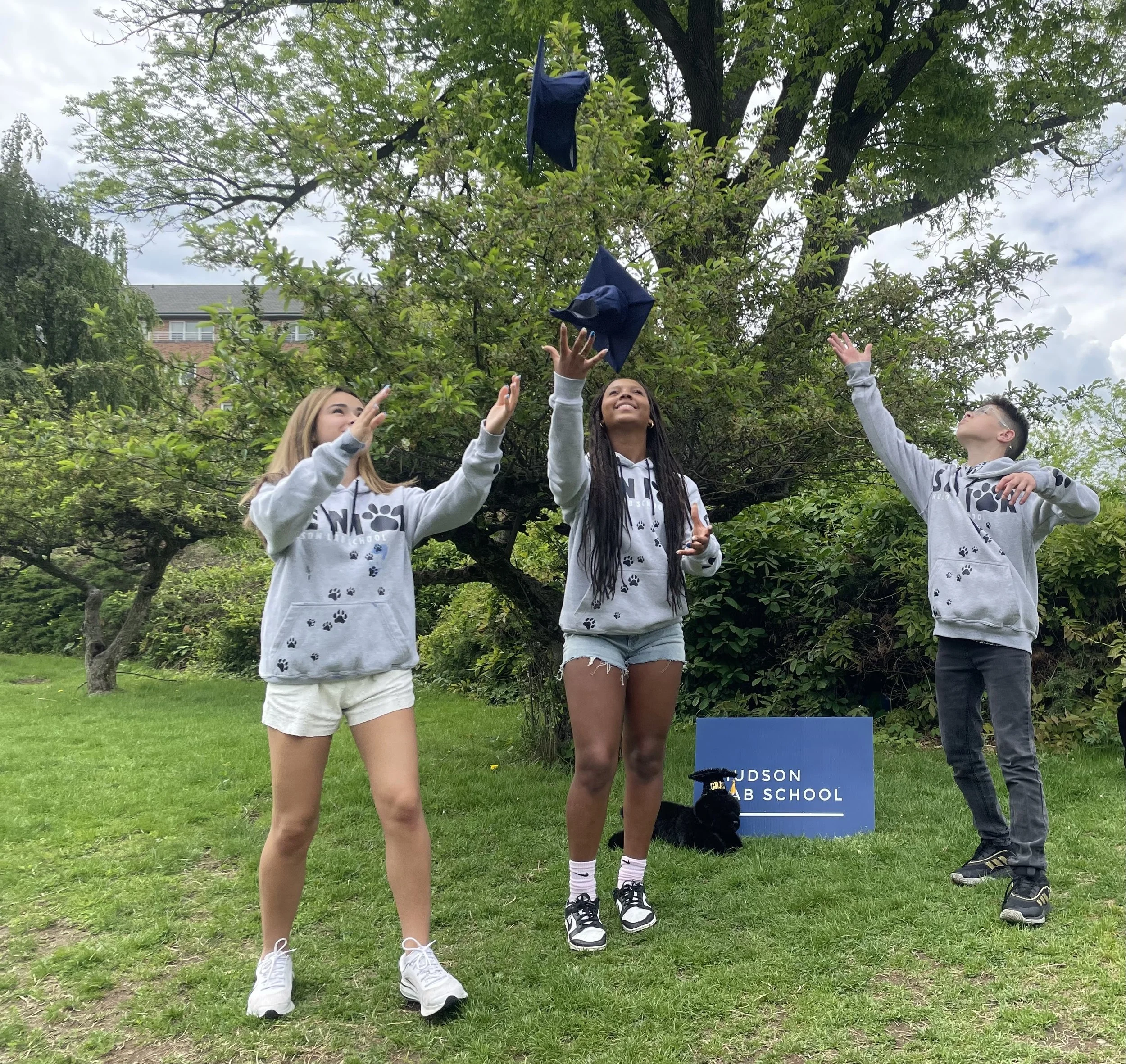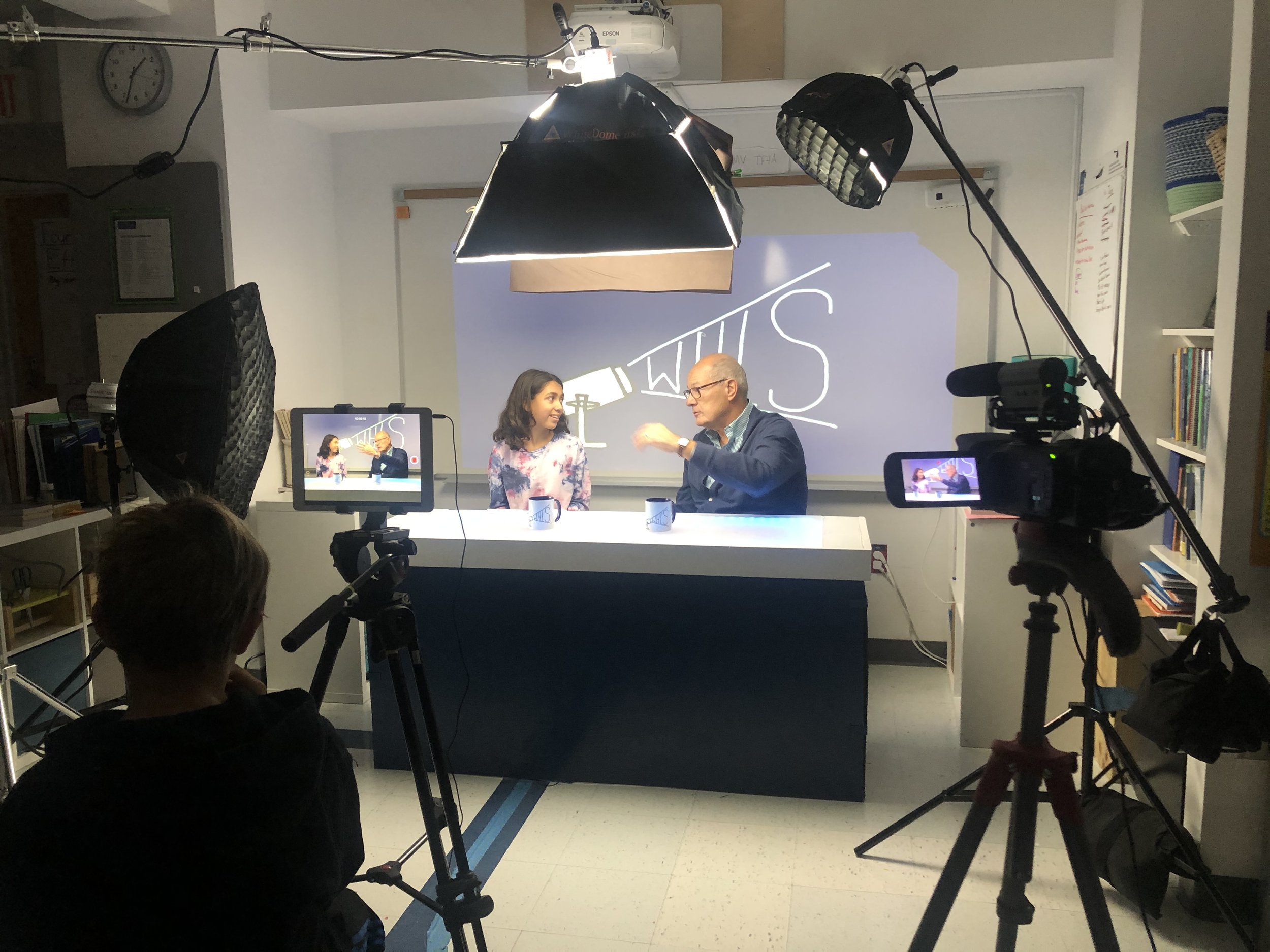
Middle School
AT HUDSON LAB SCHOOL
Where a sense of belonging meets intellectual development
At Hudson Lab School, every child is known as a whole person, and we design our middle school experience with this at the center. Grounded in research on learning science and adolescent brain development, and in collaboration with Chris Balme and Millennium School, we’ve reimagined middle school to foster cognitive resilience and intellectual curiosity.
Unlike traditional models that often emphasize outcomes alone, our approach helps students see learning as a process of exploration and discovery. As a result, our graduates are not only as prepared as their peers—they are often more prepared to excel in any high school they choose. Equipped with the confidence, adaptability, and critical thinking skills to thrive in diverse environments, they have matriculated into several highly competitive private and charter schools, excelling in demanding honors and AP courses and being recognized for their leadership skills and exceptional work quality.
The Classroom Experience
At Hudson Lab School, we believe that true intellectual development requires both academic rigor and social-emotional learning. Our mixed-grade classrooms, paired with small, skill-based group instruction, foster collaboration and mentorship rather than competition.
-
The transition from K–5 to middle school introduces a multi-teacher model, where students learn each subject from dedicated specialists. Our teachers skillfully personalize challenges, encouraging students to push beyond their comfort zones and grow with confidence. Middle school at Hudson Lab School is anything but ordinary—it’s dynamic, engaging, and joyfully intense, filled with curiosity, creativity, and discovery.
-
In our mixed-age, small, skill-based groups, every child masters math, reading, and writing at the pace that’s right for them. These classrooms allow students to learn from one another—looking up to older peers while gradually stepping into leadership themselves.
-
Daily outdoor time—on the Great Lawn, in the Wild Playspace, or on the Four Square patio—keeps students energized and inspired.
-
Our specialized programs encompassing hands-on tinkering, nature and gardening, digital arts, intergenerational learning and art serve as catalysts for broadening students' perspectives and deepening their connection to the world and their community
-
At Hudson Lab School, our annual wilderness experience for middle school students offers more than an adventure—it’s a cornerstone of real-world learning and personal growth. Through immersive experiences in the outdoors, students learn to trust each other, take thoughtful risks, and lead with empathy and resilience.
Connection & Confidence
Design Thinking in Nature
Growth Mindset in Action
Community & Stewardship
-
At Hudson Lab School, our middle schoolers are each paired with a one-on-one advisor who serves as a trusted guide and safe space. Our advisors support students through academic and social-emotional challenges, helping them set goals, reflect on growth, and build resilience. This personalized relationship is essential during adolescence, when our students are developing independence, identity, and executive functioning skills. With our advisors by their side, students are prepared not only for high school but for the confidence and self-awareness they’ll carry into every stage of life.
-
As we prepare students for their futures, it’s essential that they not only learn about professions but also experience them. Through masterclasses, guest experts who critique their work, and immersive field trips, our students engage directly with the professional world. These experiences spark imagination, expand possibilities, and help students envision not only the careers they might pursue but also the kind of people they want to become.
Matriculation
Hudson Lab School offers personalized guidance and support to students and their families throughout the secondary school admissions process. Students from the first graduating class of HLS were admitted to The Harvey School, The Masters School, The Leffell School, The Ursuline School, Montfort Academy and Harvest Collegiate High School.
Learn What Your Middle Schooler Needs to Succeed
Utilize brain research and problem reframing in order to love your child’s middle school years.







